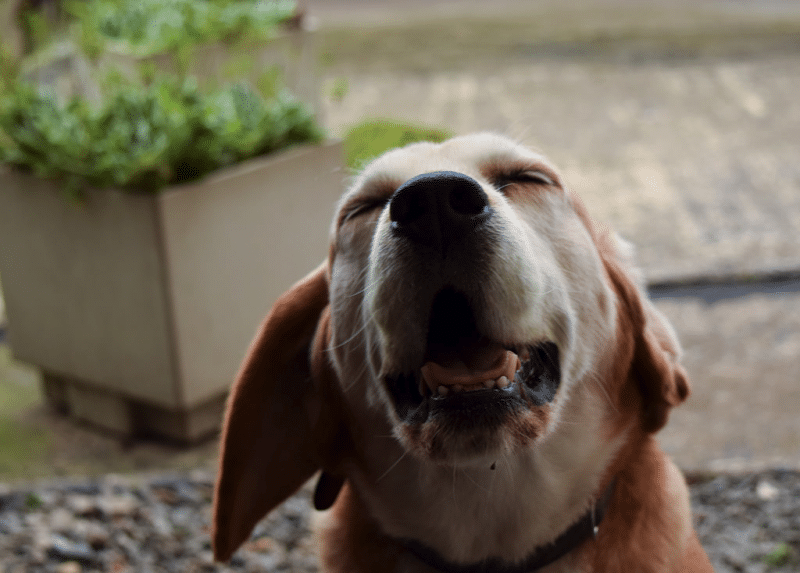
Sneezing is a common event in our daily lives. We usually sneeze when we have allergies, a cold, flu, sinus problems, among others. But, why do dogs sneeze? And, is sneezing in dogs dangerous?
There are various causes of sneezing in dogs, which are somehow different from the things that commonly cause sneezing in people. Recognizing the common causes of sneezing in dogs is important because sneezing can be a sign of serious life-threatening diseases such as cancer and distemper.
The medical definition of sneezing is “a sudden, involuntary outflow of air fair through the nose and mouth by an involuntary contraction of the muscles of expiration”. Sneezing occurs when the mucosa (the tissue that lines the respiratory tract) becomes irritated and the body tries to remove the irritant through this involuntary action.
Some of the common causes of sneezing in dogs are:
- Infections . When dogs suffer from respiratory diseases such as kennel cough and distemper, it is more common for them to cough than to sneeze. However, sneezing can be an indicator of viral, bacterial or fungal infection of the upper respiratory tract. Fungal infections, such as infection with the fungi Aspergillus spp., is a possible cause of sneezing in dogs. This fungus can enter the dog’s airways through the nose and reach the sinuses and other parts of the respiratory tract, where it can develop and cause irritation, pain, nasal bleeding, nasal discharge, and sneezing.
- Upper airway obstructions . The presence of foreign substances in dogs’ upper airways leads to the irritation of the nasal passages, which commonly results in sneezing. Foxtails plants, soil, and grass are common foreign bodies that can enter a dog’s nose and lead to irritation. When a foreign body is present inside a dog’s nose, the body will try to remove it by sneezing.
- Tumors and polyps . Tumors and polyps may develop in the dog’s airway leading to obstruction and irritation. Intranasal tumors are not common in dogs, but when they do occur, they are serious and need immediate veterinary attention. Intranasal tumors in dogs usually cause nose bleeding and sneezing, which becomes more frequent with time. In most cases, intranasal tumors require surgery and chemotherapy. If your dog presents nose bleeding he/she should see a veterinarian immediately.
- Allergies . Like humans, dogs may sneeze as a result of being allergic to certain substances, however, this type of allergies is not as common in dogs as it is in humans. Pollen is a common allergen that causes sneezing in dogs.
- Nasal mites . The mites Pneumonyssoides caninum are microscopic bugs that live inside the dog’s nose. The presence of these mites inside the nose leads to itching and sneezing. Other common signs of nose mites in dogs are chronic nasal discharge and nose bleeding.
- Inhaled irritants . Any substance that may irritate a dog’s nose can lead to sneezing. Common nasal irritants include perfumes, dust, carpet powders, and other household products.
What Should I do if My Dog is Sneezing?
There are various causes of sneezing in dogs and some of them are serious diseases that require immediate medical attention. If you observe that your dog is sneezing and he/she presents nose bleeding or seems weak, depressed, does not want to eat, has diarrhea, or shows any other sign of sickness, you should bring her/him to a veterinary clinic immediately. The veterinarian will evaluate your dog, determine the cause of sneezing, and recommend an appropriate treatment.
Dogs who sneeze due to allergies typically do not show any other sign of disease. Some allergies may resolve spontaneously when the dog is no longer in contact with the allergen (the substance that is causing the allergy). If your dog’s sneezing does not seem to improve in various days you should seek medical attention.




